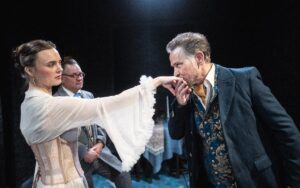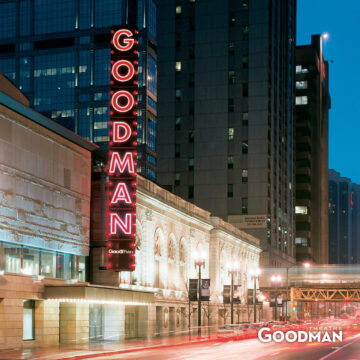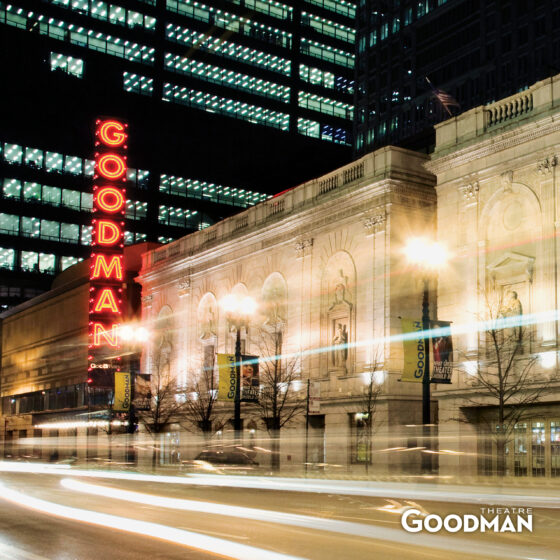![]()
Jennifer Agather and Robert Hunter Bry in “The Winter’s Tale” at Invictus Theatre. Photo by Aaron Reese Boseman Photography.
Highly Recommended
A story of reproach, remorse and reconciliation, William Shakespeare’s “The Winter’s Tale” presented by Invictus Theatre, has something for everyone. It is both tragedy and a romantic comedy with sorrow, absurdity, mirth and fantasy.
The opening act is clear tragedy and might have you wondering what you’ve gotten yourself into.
King Leontes (Michael Stejskal) falsely accuses his wife Hermione (Andrea Uppling) of having an affair with his brother, Polixenes (Raúl Alonso), that has resulted in her pregnancy.
The accusation has tragic consequences for Hermione and the couple’s son and heir, prince Mamillius (Jennifer Agather).
The new born baby girl is sent with Antigonus (Fred A. Wellisch) to the outskirts of the kingdom to be abandoned in the woods.
There are three superb monologues expertly performed. The first is by Uppling as Hermione when she defends herself. Then by Hermione’s good friend Paulina (Amber Dow) who admonishes the King for his actions. And lastly, by Stejskal as Leontes when he realizes what he has done.
These three are the pivotal players who clearly demonstrate the high level of performance within the ranks of the Invictus Theatre company.
Things lighten up considerably in the second act sixteen years later. The baby, who has been named Perdita (Jennifer Agather) has been found and raised by a shepherd (Chuck Munro).
She has grown into a beauty who has caught the eye of prince Florizel (Robert Hunter Bry). Ironically, he is the son of her Uncle Polixenes, the ruler of the neighboring kingdom of Bohemia, a place of bawdy fun and good cheer.
We won’t get into the fact that these two are first cousins. After all, this is a royal romance and it’s important to keep the bloodline in the family.
This act is full of youthful exuberance. It includes a hilarious scene of buffoonery, that would be a great success on any vaudeville stage. The performance involves Autolycus (Sam Nachison) a vagabond trickster who cleverly steals the clothes off the back of the Shepherd’s son (Kyle Quinlivan).
In the end, all the characters are united including Queen Hermione who is momentarily resurrected in the form of a statue erected to her memory by her friend, Paulina.
There are a number of minor roles played brilliantly by various actors which reminds me of the adage, “there are no small roles – – only small actors.”
Directed by Charles Askenaizer, this very capable Invictus company has no small actors. Everyone contributes to the story and their roles are capably performed.
The character of Camillo (Kim Pereria) is a bit of glue that ties Leontes and Polixenes together. In fact, he warns Polixenes of the King’s wrath and escapes with him to safety. Though a comparatively small role he is clearly no small actor. Pereria spoke every line with an easy clarity of meaning that demonstrated his mastery of this art form.
If you are unfamiliar or afraid of Shakespeare because you think it might be difficult to understand. Forsooth! Fear thee not, good soul. These most artful players do employ such mastery in their deeds and such clarity of tongue and fair enunciation, that, joined with the noble and skillful quill of the Bard himself, thou shalt have but little toil to grasp the tale and the deeds unfolding afore thine eyes.
Details: The Winter’s Tale by Invictus Theatre Company is at the Windy City Playhouse, 3014 W. Irving Park Rd., Chicago, through April 20, 2025. Running time: about 2 1/1 hours with one intermission. For tickets and more information visit www.invictustheatreco.com
Reno Lovison
For more reviews visit Theatre in Chicago











